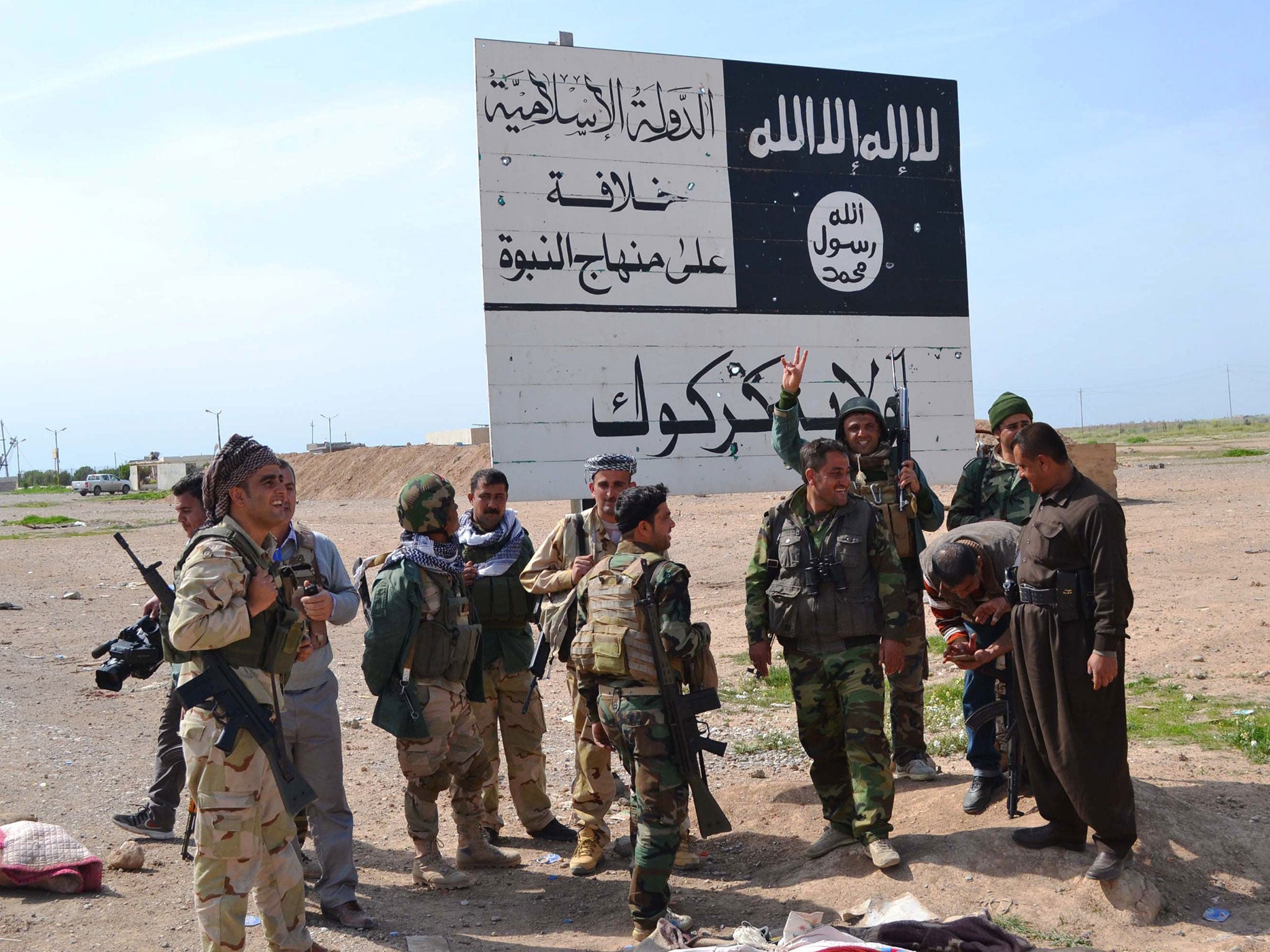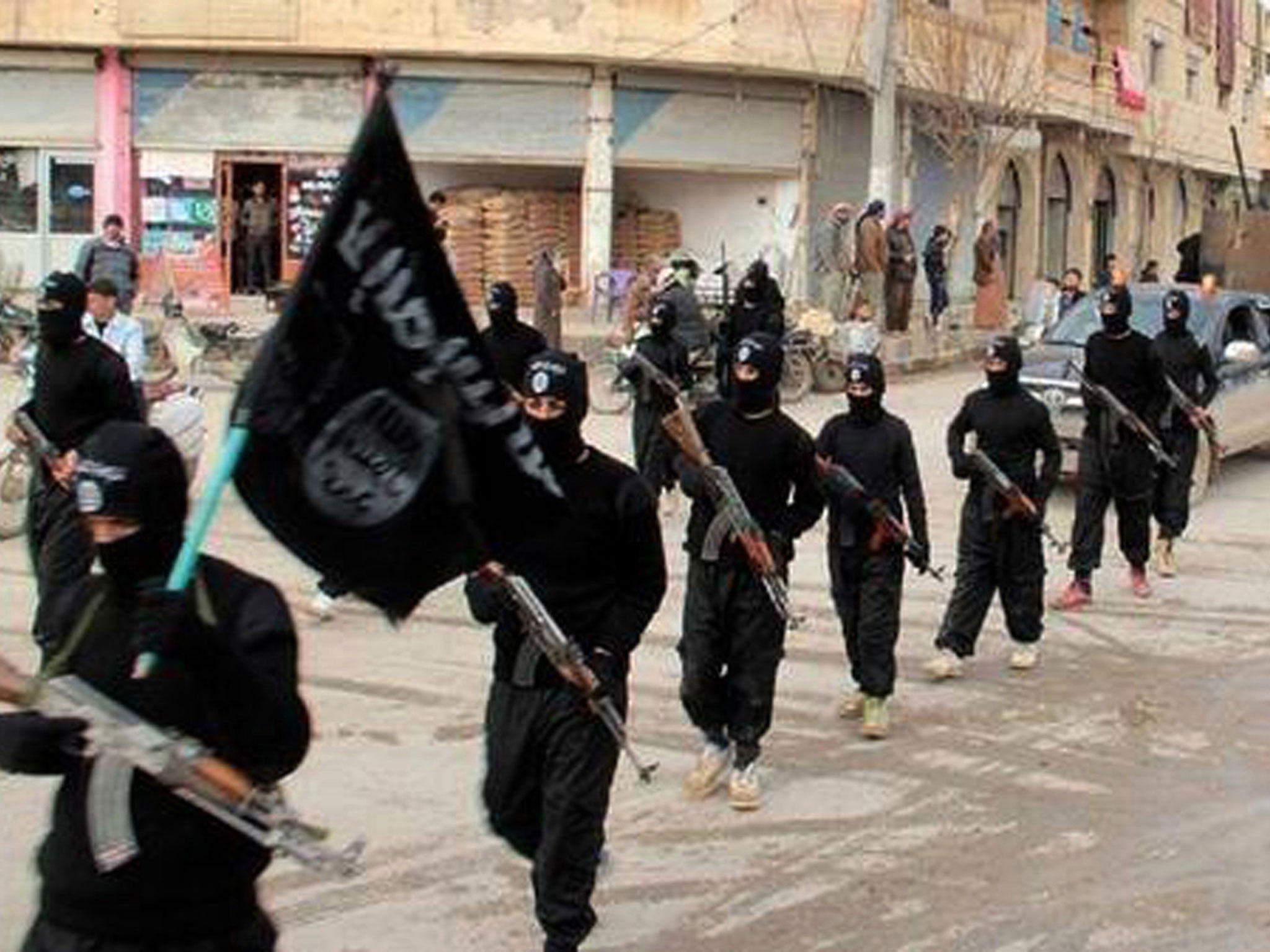Isis in Iraq: The Sunni mayor of a captured town given 'do what we want or die' ultimatum by militants
Sabhan Khalef Ali al-Juburi chose a third option and fled. Now he is involved in an alliance of Shia militias, Iraqi soldiers and his own band of fighters to reclaim Hawija

The choice for Sabhan Khalef Ali al-Juburi was simple. Do what Isis wants, or die.
The mayor of Hawija – a town in western Kirkuk province that was overrun by jihadists last summer – chose a third option: he fled.
“Isis gave me the option to do what they said or I would be killed,” he said. The response, when it came, was as simple as the options offered. They blew up his house and published photos of the moment explosives ripped it apart. Angry at his removal from power, Mr Juburi told how he then went knocking on the doors of Kurdish and Iraqi officials for help to establish a Sunni force to retake Hawija, but had little success.
In another town south of Kirkuk city, men were recently filmed standing in loose formation wearing mismatched uniforms. A huddle of commanders barked instructions. They appeared ill-equipped for the fight against a rampant Isis that stormed Ramadi on Sunday, overpowering government forces and tribal fighters there.
Mr Juburi and his men are now training with former members of the Iraqi army in a loose alliance with local Shia militias, but are yet to receive weapons or salaries.
The attempt by the American and Iraqi governments to establish a strong, Sunni anti-Isis force has failed those, like Mr Juburi, who are most in favour of it, despite the training programmes being carried out in Anbar province. Russia too has an interest in the Iraqi fight. Vladimir Putin, meeting the Iraqi Prime Minister Haidar al-Abadi, offered military aid to what he described as “old and reliable partner in the region”.
“Our people are besieged by Isis and are in a desperate situation,” one sheikh who is also from Hawija told The Independent. Both men come from the powerful Juburi tribe which has long opposed the extremists. The sheikh said that those still in Hawija, including Iraqis displaced from other Isis-held territories, cannot escape for fear of being killed at checkpoints.
Tribesmen in many areas who have tried to fight back against Isis have been brutally murdered. Mr Juburi said that a call to arms issued by Shia clerics in the wake of the Isis advance “moved us to protect our family, religion and land”. He said: “I am Sunni but I look all around and I can’t find any Sunni clerics and leaders issuing that kind of statement.” He said he wants to join the fight himself and adds that he does not have a problem with the burgeoning Shia militia groups, some of whom are backed by Iran: “One day Iran was our enemy, but now Iran is helping us fight our enemy.”
For the Shia militias, local Sunni fighters provide key intelligence and knowledge, as well as winning the support of locals, but they are also wary of the loyalties of their new allies, which in turn may jeopardise co-operation.
“[Sunni fighters] know their own land, the properties and neighbours, so when popular mobilisation forces take Hawija they are going to need their help,” said Karim al-Nouri, the spokesman for the popular mobilisation group of mainly Shia militias in Baghdad, and commander of the Shia Badr Organisation. He added that Mr Juburi’s men had not been armed because some government weapons given to tribal fighters in Anbar had ended up with Isis.

Along with Kurdish officials, he did not say which forces would be involved in an attack on Hawija or give a date for the offensive, which looks less likely after government forces fled the Anbari provincial capital of Ramadi.
The fighting continues east of Ramadi. Iraqi forces said they thwarted a third attempt by Isis to break through their defensive lines east of the city. Sunni fighters and Iraqi police were said to have exchanged mortar and sniper fire across the new front line in Husaiba al-Sharqiya, about halfway between Ramadi and a base where a counter-offensive led by Iraqi paramilitaries and Shia militia is being prepared.
“Daesh [Isis] is desperately trying to breach our defences but this is impossible now,” police major Khalid al-Fahdawi told Reuters. “We have absorbed the shock and more reinforcements have reached the front line. They tried overnight to breach our defences but they failed. Army helicopters were waiting for them.”
Habbaniya is one of a few remaining pockets of government-held territory in Anbar, and lies between Ramadi and Fallujah – controlled by Isis for more than a year.
Many people living in majority-Sunni areas like Hawija and Anbar province are fearful of sectarian attacks by Shia militias, who stand accused of the burning and looting of homes and abuses in areas retaken from Isis. But the Juburi sheikh from Hawija said he had seen no evidence of this and said that homes burnt in the central city of Tikrit may have belonged to Isis members. He praised the co-operation between tribesmen and Shia groups during last month’s operation that succeeded in freeing Tikrit. His men were able to pass on knowledge of locals who had joined Isis to Shia fighters.
But Ahmed Ali, director of the Iraq Security and Humanitarian Monitor project Epic, said that no one group will be solely responsible for wreaking havoc in liberated areas. “Whoever clears Isis-controlled areas – whether it is the tribes, the popular mobilisation, Peshmerga or the army – they are going to commit retribution acts,” he said, a reminder that the removal of Isis, which appears increasingly unlikely, will not end the violence.
Join our commenting forum
Join thought-provoking conversations, follow other Independent readers and see their replies
Comments
Bookmark popover
Removed from bookmarks